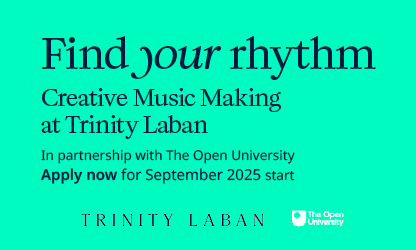Where is the music?
Professional music organisations seem more likely to network amongst themselves and to talk to a similar musical ensemble, music education centre or concert venue in a different city, than they are to take note of the musical activity on their own doorstep.
All of them are likely to work for or with under-18s. But non-professional adult musicians are merely seen as audiences, never as a full part of the music ecology.
Young people are lent instruments, given tuition, offered workshops and performance opportunities in great venues. Then they turn 18 and suddenly there is no support, unless the young person is looking to train professionally.
A vanishingly small amount of them will do so, but the other 95+% are not encouraged – despite all the findings which now suggest the benefits to individuals’ physical and mental well-being – to carry on making music beyond 18.
Ignorance through a lack of engagement with their local communities seems to me the root cause of this; and a continued inability by the professional arts in the UK to see themselves as part of a continuum which goes from the 6-year-old picking up his first guitar, via the teenage band playing in local community halls, includes the youth marching band, embraces the full amateur symphony orchestra, and the folkies in the pub, and of which the fully trained and successful musical performer is part, for sure, but only a part. Football gets this – so why don’t music and the arts?
And it is not as if the issues for professional and leisure-time musicians are fundamentally different. Don’t both want to find the best and cheapest places to source music, to rehearse and perform? Aren’t both struggling with audiences, marketing, ticket sales? Is the local authority not making life difficult for both when it revises the licensing regime or closes a venue?
Professionally run organisations need to realise they may be the pearl in the local oyster of music provision, but that they are not by any stretch of the imagination the only ones making or promoting music; that they are very much part of a living and incredibly diverse music fabric shaped by its community, in all its gloriously diverse neighbourhoods and cultural groupings.
Leisure-time music groups can help with this by seeking out and talking to their local professional music organisations, music education hubs and music venues. But those organisations are going to have to step outside their bubble to get to know their community and to understand where they sit within it, to earn its respect and goodwill, and to do the best they can for music in their locality.
As August Rush has it, ‘…music is all around us, all you have to do is… listen.’



